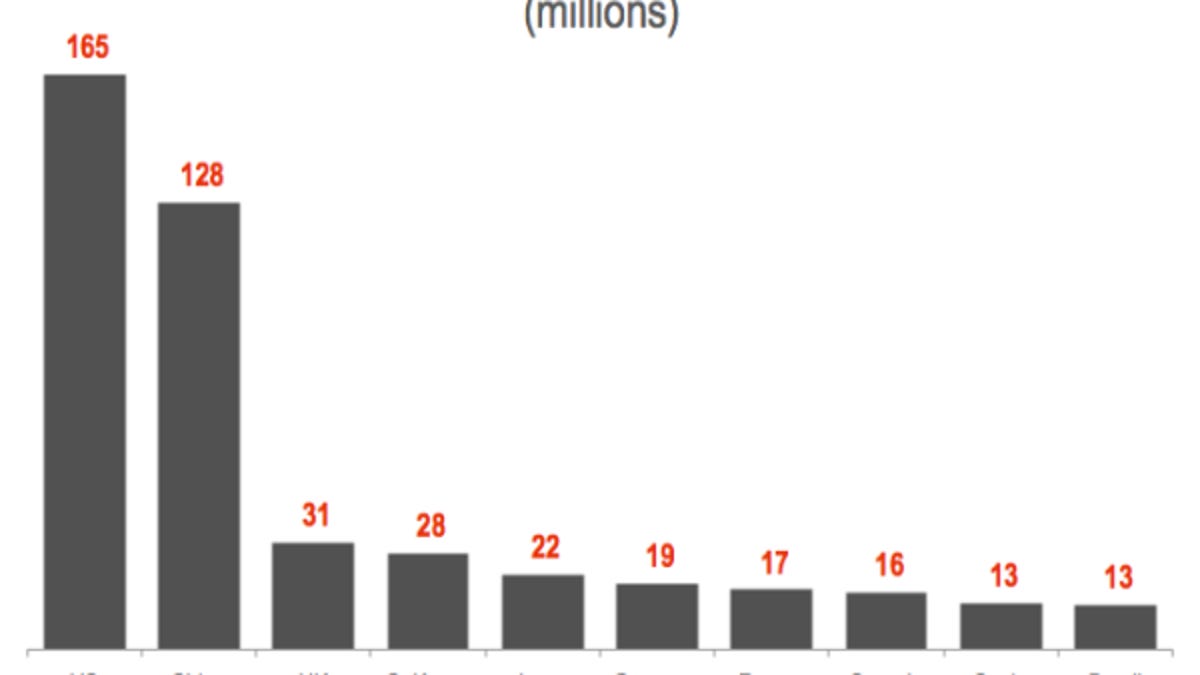Android, iOS growing 10 times faster than PCs did in the 1980s
Users have cottoned to these mobile OSes twice as quickly as they did to Web itself at its height in the 1990s, according to new data.

The Android and iOS operating systems may be even more popular than you think.
Research firm Flurry Analytics today announced that iOS and Android adoption is ten times greater than PC adoption at that technology's rapid-growth phase in the 1980s. The mobile platforms have amassed users twice as quickly as the Web during its go-go period in the 1990s, and three times faster than recent social networks. The company is basing those figures on the first five years of widespread adoption across all of these technologies.
According to Flurry, 640 million iOS or Android-based devices were in use last month. Out of that, 165 million were running in the U.S. and 128 million were in operation in China. The U.K. came in third place with 31 million units, followed by South Korea and Japan at 28 million and 22 million, respectively.
"Year-over-year, Flurry calculates that net active devices in the U.S. grew by approximately 30 million, while China saw more than 100 million new active devices enter the market," Flurry said today in a statement. "At this rate, China's active installed base could overtake the United States as early as the 2012 Holiday season."
It's easy to see why. According to Flurry, iOS and Android adoption has grown 401 percent in China in the last year. Chile and Brazil round out the top three at 279 percent and 220 percent, respectively.
It's no secret that Android and iOS are wildly popular. Earlier this month, research firm IDC reported that the two operating systems combined to own 85 percent of the worldwide smartphone market. Android, however, nabbed the lion's share of that tally, hitting 68.1 percent share.
Flurry didn't break out the popularity of the platforms in its own study. However, the company did share some other interesting insights, including that Singapore leads the world with 92 percent Android and iOS penetration within its borders. Hong Kong and Sweden followed with 87 percent and 86 percent penetration, respectively. The U.S. came in fifth place with 78 percent penetration.

